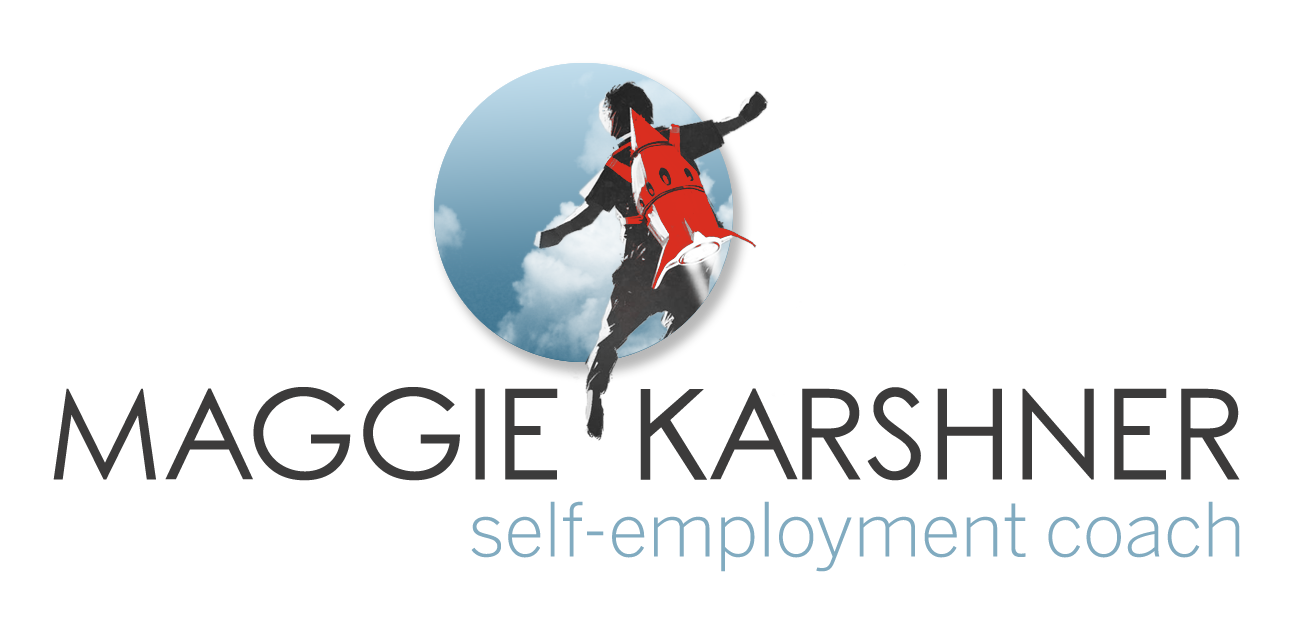How Should My Business Celebrate Black History Month?
/Opening disclaimer: As a white person, I am most qualified to address other white people. So that’s who I’m writing this for: I’m writing this for white people. If you're white and care about bringing about racial equity, you are reading the right post! (For my POC readership: I welcome your feedback! I still have plenty to learn!)
Black History Month might seem like an unusual choice of topic for what is essentially a business blog. But is it really? How much do you know about black-owned businesses? How many black entrepreneurs can you call to mind? (A "list" that starts and ends with Oprah is not good enough.) If any average American can't do this, then Black History Month is a necessary topic for businesses to take on. (And in a real way; not just trying to sell more stuff!)
I believe no business is too big or too small to take on this topic. When considering the scale of business I work with, people who are self-employed I think of it like this: my freedom and your freedom are bound up in each other. None of us operate in a vacuum; we are all interconnected. And while an "entrepreneur" might sound like someone who's fiercely independent, in reality, a business is nothing without customers. A major perk of being a business owner is the independence it affords you. For the individual owner, it is often about freedom. And no owner gets access to that freedom without a large cloud of people around them who are willing to pay for what they do. (Not to mention the staff and vendors many businesses depend on! And I haven't even touched on larger policy-scale influences! But I'm trying to keep this at a human scale.)
The thing about "freedom" in this context is that it's difficult to see when you are free, and when others are not. Most especially for those of us who are privileged by our society. As a white person, it’s easy for me to overlook the suffering of non-white people. It's a blind spot that all white people have. Thankfully we don't have to suffer with this partial blindness; there are ways to compensate and improve our awareness of our surroundings.
Becoming aware of our racial surroundings has many facets. I think of it as falling into two broad categories: knowledge-building and skill-building. Knowledge-building requires that we proactively learn about issues of race and seek out the perspective of people of color. Skill-building requires that we improve our ability to engage with these topics.
Knowledge
The history I was taught in school was woefully skewed. While some of that can be blamed on the Texas public school system, it's true of essentially all public schools in the nation. Learning a more multifaceted history is something we must take on in order to bring about equity. (On the fence about this? George Washington Carver did SO much more than "invent peanut butter.” And I only just learned that this month!)
But it's more than just history. It's now. What is the leading edge of thought regarding black issues? You might not know because it's rarely covered on the major news channels. Don't let that stop you from consuming it! Through the power of the internet, you can gain access to leading discourse as well as creative projects made by and for black people! Follow people of color on social media, read books (fiction or non-fiction), watch movies, tv shows (And there are so many great lists of resources that you get even more social media influencers, movies and tv shows links!) And, when consuming this media you come across something you don't know or don't understand, Google it! Empower yourself with the knowledge that is at your fingertips, on Netflix, and at your local library!!
Skills
Knowledge is nothing if it doesn't come with action. For most of us well-intentioned white people, I think this is where we often get stuck. We know we want the world to be different, but short of voting and donating to charities, we don't know what else we can do. I've experienced this as an "all or nothing" feeling. Either I've done X and that's all I can do so I don't need to think about it anymore, or there's "nothing" I can do for the situation and so I check out absolving myself of any need to feel guilt for not doing more. Both of these states have felt insufficient for me, so in my own process, I've sought a middle ground between these two extremes. Each extreme involves a certain element of "checking out" and the middle requires staying engaged with the pain caused by white supremacy, but also being in a state of readiness to take action when an issue or movement needs immediate support.
Staying in this middle ground is hard. As white people engaging with race it is optional. We can check out whenever we feel like it. In fact, "checking out" is actually the default. To try and keep racial issues on your radar is effectively "checking in" constantly and that can feel like you're running an emotional marathon! And, marathons are not impossible, but they are something you train for. So how are you in training? What "runs" do you go on to develop your system and make your "racial engagement" muscle stronger?
Just like how training builds your physical endurance, this kind of practice builds your resilience to racial issues. And just like how any training regime incorporates a "rest-day" so that your body can recover, your racial justice practice needs robust self-care practices. Developing strong self-care is good for you, but is also a vital skillset for anti-racism work.
Strategies for Practice
In the same way that a personal trainer might recommend exercises to help you achieve your marathoning goals, here are some practices that I've found helpful exercises for my racial engagement "muscles." A standing practice for myself has been reading audiobooks by black authors. It's relatively passive and enjoyable, but keeps my mind aware of these issues (while also building my knowledge!) Similarly, consuming black TV and movies feels easy and gives me access to a perspective very different from my own. What feels easy for you? Maybe it's following a black thought-leader on twitter? or setting up a google alert for your favorite black news writer so you never miss an article?
UPDATE: Looking for more help developing your practice and staying engaged? Check out Martha Hurwitz’s trainings and events.
When I'm more energetically engaging, I put on my racial thinking cap and examine mundane, day to day things: local news, national politics, the TV show I just watched, any environment I find myself in, etc. I ask myself things like: Where are the people of color? Who has the power? Is there a change that could make things more equitable? (If you're at a loss to find answers to these, ask "what are POC voices saying about this?" and you'll get a lot of insight from a quick google search!)
This is a practice of seeing where racial inequity exists and how it manifests. It's not an exercise in shaming others for their unexamined or problematic views. This practice is actually most potent when turned inwards. (e.g. in what ways am *I* enacting white supremacy at this moment?) But turning it inwards is deeply uncomfortable and that's why we practice on things outside ourselves.
When You're Ready to Turn it Inwards
A baby step I've found in turning this practice inwards is to monopolize on times when I'm already feeling good. Picking apart a shitty interaction for the racial aspects of it is guaranteed to just make us feel shitier. So let's try to enact anti-racism in the good moments! When I feel like I’ve been granted a gift, been blessed or otherwise am amazed and grateful, I look for a way to pay that feeling forward. When my business first started generating more than my living expenses, I started monthly donations to Real Rent Duwamish. When my mom gifted me a new (to me) car for my 35th birthday, I gifted my old car through the reparations project. As I’m KonMari-ing my life this year, I’m looking for intentional ways to gift my over-abundance.
Now It's Your Turn
We've come to the end of the article and you might be feeling dismayed that it's clear you won't be getting a checklist for how to make your business instantly anti-racist. That checklist does not and cannot exist. The closest we can come to that checklist is to build knowledge and skills so that we're at the ready as we become more aware and as new actions can be taken.
UPDATE: If you want something closer to a checklist, I highly recommend Martha Hurwitz’s Racial Equity Audit for Sole Proprietors.
Anti-racism isn't a status, it's a commitment to trying, and messing up, and trying again. The prevalence of white supremacy can be reduced in the short-term, but the eradication of white supremacy will extend beyond our lifetime. I've shared my strategies and practices in this article because humans learn through modeling. For those that need to know what others are doing, I'm fine being an example. Please do not praise me for these things that I do. They are not actually enough to let POC live their lives more free of white supremacy. That change comes from societal and policy changes. And in order to be ready for those, we need to do this. So take a moment and consider:
In what ways have you already built your knowledge?
What's one easy way for you to build your knowledge further?
What skills do you already have that help you stay in the middle ground of engagement rather than checked out because of "done everything I can" or "there's nothing I can do"?
What skills are you working on that help build or maintain your resilience?
If you're inspired, share your answers in the comments!




